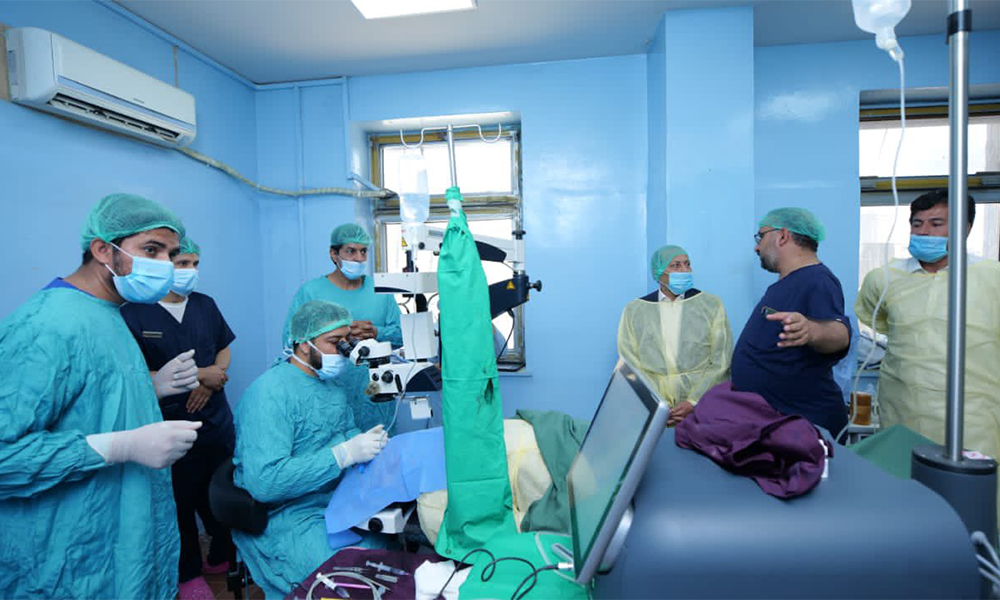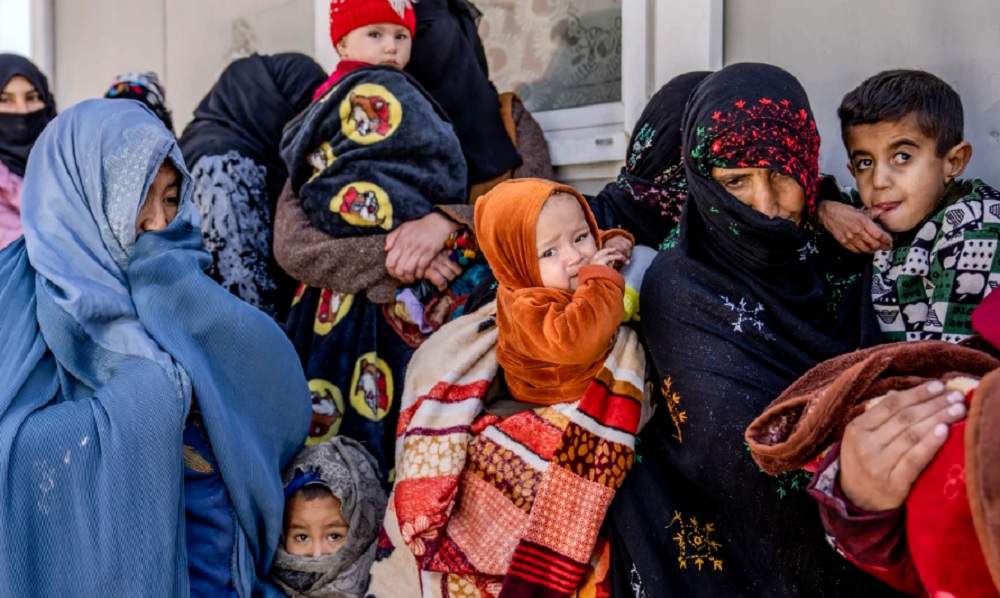Health
Pakistani doctors treat 3,764 Afghan patients at free eye clinic in Kabul

A team of Pakistani ophthalmologists examined a total of 3,764 Afghan patients at a four-day free eye clinic at Noor Hospital in Kabul this past week.
The free clinic was organized by an 11-member team of Pakistani doctors in collaboration with the Pak-Afghan Cooperation Forum, Al Khidmat Foundation, and Afghan Ministry of Public Health.
The Pakistani doctors performed a total of 516 surgeries. These included 482 cataract surgeries, 22 oculoplastic surgeries and 12 vitreoretinal surgeries.
Dr. Zahir Gul Zadran, head of Noor Hospital, thanked the organizers for their support and said: “These doctors have also brought medical equipment to this hospital for the treatment of patients, the value of which is about Rs 2.4 million lakhs ($10 million).
Zadran said this was the second time that these doctors visited Noor Hospital to treat Afghan patients.
Health
Majority of Afghans with mental disorders are women: officials

Based on last year’s data, 52 percent of people with mental disorders in Afghanistan are women, the Ministry of Public Health said.
However, after the Islamic Emirate took over the country and with the improvement of nationwide security and the provision of better health services, mental disorders have decreased, the ministry said.
“Overall, the mental security of men and women in Afghanistan is not ensured and their mental security is disturbed. According to the figures shared with us, in 2023, 52 percent of the visitors for mental disorders were women,” said Sharaft Zaman Amarkhil, the spokesperson of the Ministry of Public Health.
“Generally speaking, we can say that compared to the past, the instances of mental illnesses have decreased,” he added.
People suffering mental disorders mostly refuse to share their problem, willingly or unwillingly.
“There are many problems at home; We are poor. I finished school, but didn’t find any job,” Ansar, a mentally ill person, said.
According to the World Health Organization (WHO), half of Afghanistan’s population suffers from mental distress.
Factors such as unemployment, poverty, domestic violence, ban on girls’ and women’s education and work, and drugs are said to be key contributors to mental distress.
Health
Over 1 million women in Afghanistan malnourished last year: WFP

A total of 1.2 million women in Afghanistan were malnourished last year, the U.N. World Food Programme (WFP) said on Thursday.
Mona Shaikh, head of nutrition at WFP Afghanistan, said that the number of malnourished women is expected to increase this year.
On malnourished children, she said that their number will reach 3 million this year, but WFP will be able to assist only 1.6 million of them.
WFP warned that after foreign assistance cuts last year, it saw a rise in children’s admissions to malnutrition clinics in Afghanistan.
More than 23 million people are in need of humanitarian assistance in Afghanistan this year, according to the United Nations. Over half of them are children.
Health
Public Health minister meets with head of the UN refugees agency

Dr. Qalandar Ebad, the Minister of Public Health met with Leonard Zulu, the head of the United Nations High Commissioner for Refugees, on Thursday in Kabul to discuss issues facing the health sector in the country.
Among the issues discussed was that of the establishment of new health centers for returnees in the country.
Ebad said the provision of better health services for compatriots and returnees was one of his priorities and requested the cooperation of this organization in this field.
Leonard Zulu assured Ebad of the organization’s continued cooperation.
-

 Regional5 days ago
Regional5 days agoIndian foreign ministry advises against travel to Iran, Israel
-

 Latest News5 days ago
Latest News5 days agoLightning strikes in Helmand kill one, injure three
-

 Latest News5 days ago
Latest News5 days agoTop former US general claims Daesh-Khorasan is ‘on the upswing’
-

 Sport4 days ago
Sport4 days agoACL draw to be broadcast live on ATN channels
-

 Business5 days ago
Business5 days agoAfghanistan reaches self-sufficiency in production of 133 items: MoIC
-

 Health5 days ago
Health5 days agoMajority of Afghans with mental disorders are women: officials
-

 Regional4 days ago
Regional4 days agoIRGC chief warns of harsher response if Israel attacks Iran
-

 Regional5 days ago
Regional5 days agoGunmen kill 9 men after abduction in southwest Pakistan
























